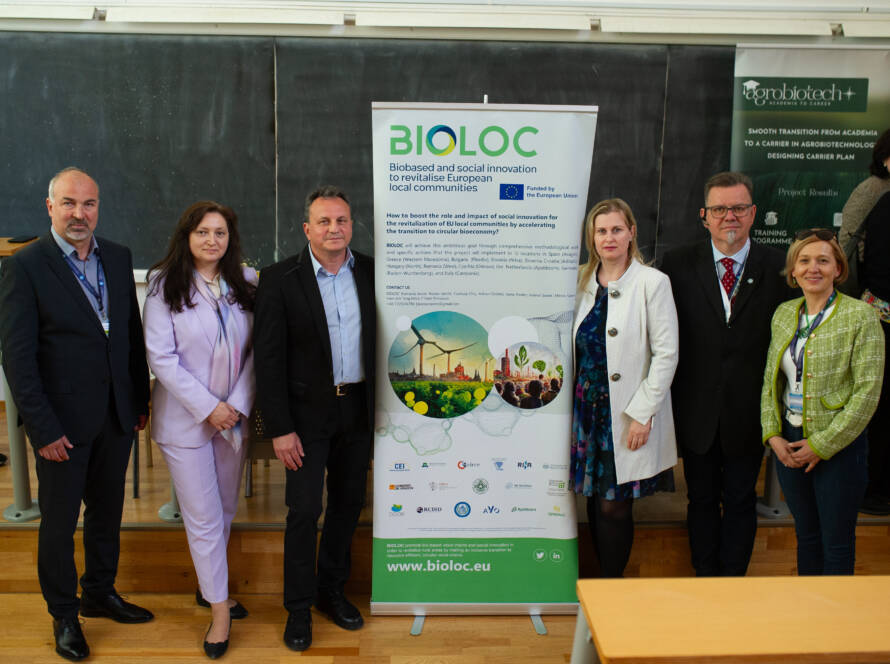
From September to December 2023, the BIOLOC project hosted a series of workshops across twelve European regions, aiming to harness local potential for a greener future. These workshops were all about exploring sustainable, innovative, and participatory ways to help communities transition to eco-friendly practices.
What’s the BIOLOC Project About?
BIOLOC is all about boosting the circular bioeconomy (CBE) by promoting social innovation and revitalizing communities. The goal is to create resource-efficient, bio-based production and consumption systems that benefit everyone, especially marginalized groups. We’re tackling big issues like ageing populations, rural migration, lack of services, high unemployment, and social exclusion.
Local Hubs and Community Involvement
Our workshops were part of Work Package 5 (WP5), which focuses on setting up local hubs for stakeholder interaction and developing bio-based solutions tailored to each region’s needs. Task 5.3 – Bio-based Initiative Labs saw us organizing workshops with folks from all sectors—academia, government, civil society, industries, and the primary sector. With over 312 attendees, these workshops were a fantastic opportunity to gather insights and define the most promising initiatives, keeping social inclusion and sustainability front and center.
What Happened at the Workshops?
– Promoting Circular Bioeconomy: We tailored discussions to each region, helping identify the best bio-based value chains and the marginalized groups that could benefit from them.
– Engaging Stakeholders: While engagement levels varied, local governments and primary sector reps (like farmers and livestock producers) were super active. We found great synergies with socially disadvantaged groups and a strong interest in including them.
– Training Needs: Many regions highlighted the need for training on bioeconomy and new business models, along with better infrastructure and integration activities for isolated or culturally diverse groups.
– Effective Communication: We realized that communicating the social, environmental, and economic benefits of CBE is key. This includes job creation, decarbonizing industries, and creating new income sources.
Challenges and Next Steps
We identified several challenges, such as high investment costs for new technologies, lack of knowledge about circular business models, regulatory hurdles, complex supply chains, decentralized locations, high transportation costs, and climate change risks.
Looking Ahead
These workshops laid the groundwork for inclusive CBE activities in our twelve regions. They facilitated valuable discussions and perspective exchanges, helping us identify high-potential bio-based value chains and the groups that can benefit from them. Moving forward, we’ll focus on addressing the challenges we’ve identified to keep advancing these initiatives and bringing positive change to our communities and the environment.
Stay tuned for more updates as we continue this exciting journey towards a greener, more inclusive future!



